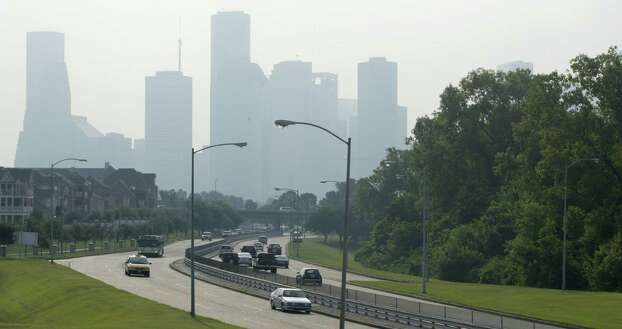Adrian Shelly wrote this great piece for the Houston Chronicle, challenging the Texas Commission on Environmental Quality to fight for Texans’ health, not lower air pollution standards.

Shelley: EPA mandate would benefit the lives of all Houstonians
By Adrian Shelley | February 22, 2014 | Updated: February 22, 2014 2:43pm
We know that ozone pollution is a public health threat in Houston. Now a study by the U.S. Environmental Protection Agency suggests that threat is greater than previously thought. As a result, the ozone standard is likely to be lowered by the end of the year. Houston has never met an ozone standard, but it is time for us to get serious about protecting our health.
The Environmental Protection Agency has been considering lowering the standard since 2008, when President George W. Bush‘s EPA revised it to 75 parts per billion. That revision defied an EPA recommendation for a standard as low as 70 parts per billion. Now the agency recommends that 60 parts per billion may be needed to protect public health.
Ozone, unlike other air pollutants, isn’t restricted to certain parts of Houston. It’s found everywhere, and it causes asthma attacks, heart disease and even early death. In the Houston region, 6 million people are at risk.
It is the responsibility of the Texas Commission on Environmental Quality to bring ozone down to healthy levels. In reacting to the EPA’s new findings, the TCEQ focuses not on the need to protect public health, but on the regulatory burden of reducing air pollution. The TCEQ is already attacking the science behind the new study. TCEQ Chief Toxicologist Michael Honeycutt has questioned even the concept of an eight-hour ozone standard, suggesting in a Houston Chronicle story that it might be “more appropriate” to return to a one-hour standard, as the EPA had in the 1970s. (“EPA likely to tighten smog rules” Page A1, Monday)
The EPA replaced the one-hour standard in 1997, relying on evidence that chronic exposure to low levels of ozone is a greater health threat than brief exposure to high levels. Honeycutt prefers the old standard because one hour is “a reasonable amount of time for people to be outside.”
In other words: If the air in Houston is unsafe, the Texas Commission on Environmental Quality shouldn’t have to clean it up, and you should be “reasonable” and stay inside.
Is Honeycutt forgetting that Texans have the freedom to choose when and where to spend our time? Is he simply ignoring the thousands of laborers and construction workers who are outside every day, breathing polluted air?
Telling Houstonians how to spend our time is insulting, especially from an agency that is tasked with protecting our health. The TCEQ should stop blaming us for going outside and start looking for solutions to our air-quality challenges.
The ozone problem in Houston is complex, and fixing it will be difficult. As Air Alliance Houston board president Larry Soward told the Chronicle’s Matthew Tresaugue, “I have real concerns that a city like Houston, with its industry, can reach a standard that low on a regular basis.”
To make matters worse, nearly half of our ozone pollution comes from “background” sources: naturally occurring and wind-transported ozone.
The EPA continues to explore strategies to reduce background pollution, but the state environmental agency has fought that effort as well.
To its credit, the TCEQ has overseen improvements in Houston’s air quality for three decades. We have cleaner vehicles, new technologies at coal plants and leak reduction at chemical factories and refineries. But the Texas Commission on Environmental Quality dismisses new regulatory solutions as “unnecessary and overly expensive.”
Progress on ozone reduction has stalled in recent years, and the commission https://www.chron.com/opinion/outlook/article/Shelley-EPA-mandate-would-benefit-the-lives-of-5258667.phpseems to have given up. As Dave Brymer, TCEQ director of air quality, says, “I don’t see how we will get there.”
So the agency charged with protecting our state’s environment is out of ideas. What should we do, stay inside?
We won’t do that. We’re outside looking for solutions for cleaner air, and we’re asking the TCEQ to join us.
We’ve provided Houstonians with a public health tool – houstoncleanairnetwork.com – that lets them track ozone pollution in real time. We also know that opportunities exist to further reduce ozone pollution in Houston. Cars, trucks and ships can be made cleaner. The petrochemical industry can install new pollution control and monitoring technologies. We need to implement these strategies now, before a lower standard makes compliance even more difficult.
The Texas Commission on Environmental Quality must accept its role as a leader in this effort to protect our health.
Together, we can enjoy clean air and a healthy future.
Shelley is executive director of Air Alliance Houston.
Source: Houston Chronicle





